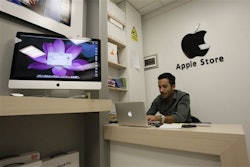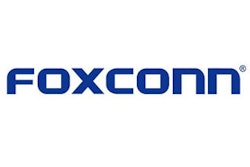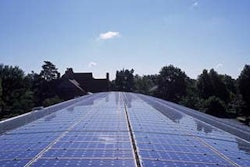SAN FRANCISCO (AP) -- The U.S. Department of Justice is demanding that a Taiwanese company pay a $1 billion fine and two former top executives each serve 10 years in prison for their central roles in what prosecutors called the most serious price-fixing cartel ever prosecuted by the U.S.
The proposed sentences would be the stiffest penalty ever meted out for price-fixing convictions if a federal judge adopts the DOJ's position at sentencing Thursday. The DOJ argues the sentences are necessary to punish Au Optronics for forcing U.S. consumers to pay billions more than they should have for electronics, and to deter others from engaging in price fixing.
The DOJ lawyers made the demands, which include $1 million fines for each of the executives, in court filings Tuesday. They are wrapping up a years-long investigation of a global price-fixing scheme that artificially increased the price of LCD screens used in televisions, computers and other electronic products made by Apple Inc., Dell Computers and many of the largest high-tech companies in the United States.
"The conspiracy affected every family, school, business, charity, and government agency that paid more to purchase notebook computers, computer monitors, and LCD televisions during the conspiracy," prosecutors concluded in arguing for the criminal penalties.
AU Optronics and the other co-conspirators are also the targets of class action lawsuits filed by customers, retailers and consumers.
In July, the company, along with Toshiba and LG, agreed to pay a combined $571 million to settle one of the lawsuits. Other manufactures, including Hitachi, Sharp and Samsung, agreed in December to pay $538 million to settle.
U.S. District Judge Susan Illston is expected to sentence AU Optronics and its two top executives. Seven other Asian manufacturers and 22 of their executives have previously pleaded guilty and agreed to pay a combined $890 million in fines. The 10 executives who have been sentenced so far received prison terms ranging from six months to a little more than year in prison.
It's the largest criminal antitrust case ever prosecuted by the DOJ, surpassing the break-up of a vitamin cartel in the late 1990s that netted $875 million in criminal fines.
A jury found AU Optronics, its former president H.B Chen and former executive vice president Hui Hsiung guilty and acquitted two others. The jury couldn't agree on a verdict for a fifth executive, and prosecutors dropped charges.
AU Optronics refused to plea bargain with the DOJ, becoming the only company to go to trial. Its lawyer Dennis Riordan says the company plans to appeal the conviction after Illston recently refused to overturn the jury's verdict issued in March.
Prosecutors insist that the AU Optronics executives and the company deserve harsher treatment than the others who pleaded guilty and helped with the investigation.
Prosecutors say the conspiracy began on Sept. 14, 2001, in a luxury hotel in Taipei, Taiwan, and ended when the FBI raided AU Optronics' Houston office in December 2006. In between, executives from the companies met more than 60 times in luxury hotels throughout Taiwan to set prices for the world market, racking up $72 billion in sales during that time.






















